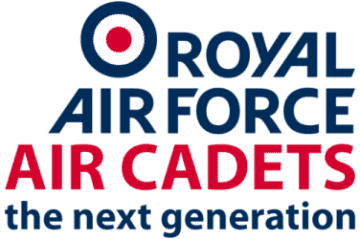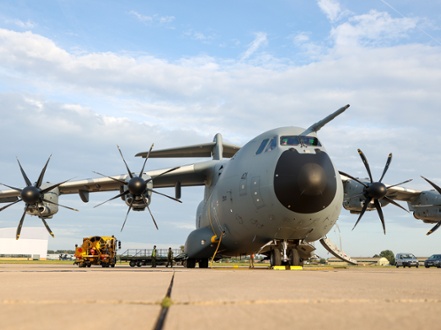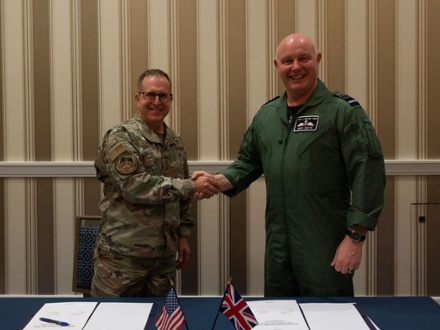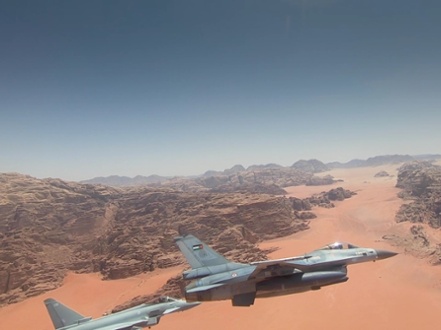RAF Aviators from numerous professions are participating in Exercise Toxic Trip 23. This year, the annual NATO Air Forces’ Counter Chemical, Biological, Radiological and Nuclear (C-CBRN) training event is hosted by the Belgian Air Component, at Koksijde Air Base. From 18th to 29th September 2023, the C-CBRN experts of 18 National Air Forces, from across NATO – and its Austrian, Swedish and South Korean Allies - are training together to rehearse and integrate their C-CBRN Defence procedures within a realistic Deployed Air Base scenario.
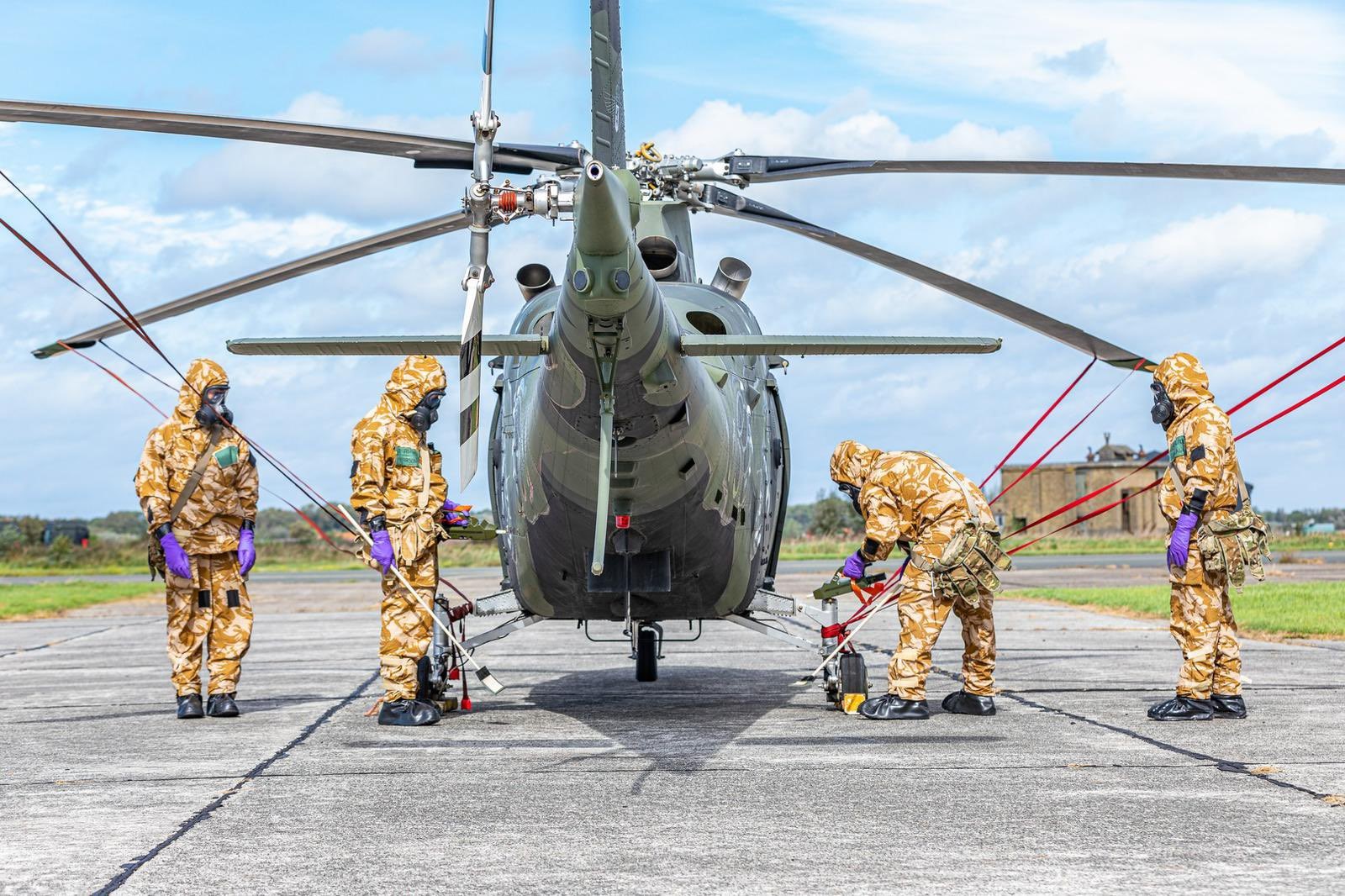
The high-profile 2018 Salisbury Novichok Incident was just one example of the threat posed to the UK and our Allies by those who seek to harm us with CBRN Weapons. All current members of the Air Counter-CBRN Team (ACCT) – now coordinating the RAF’s deployment in Belgium - participated in Operation Morlop, which resolved the Salisbury Emergency. Joining them on Exercise Toxic Trip 23 are fellow RAF Regiment Gunners, Survival Equipment Technicians, Medical Staff, Firefighters, Musicians and Armourers, providing integrated RAF C-CBRN capability. The RAF Centre of Aviation Medicine (experts in Aircrew C-CBRN Flight Equipment and procedures) is also instrumental to the RAF’s Participation.
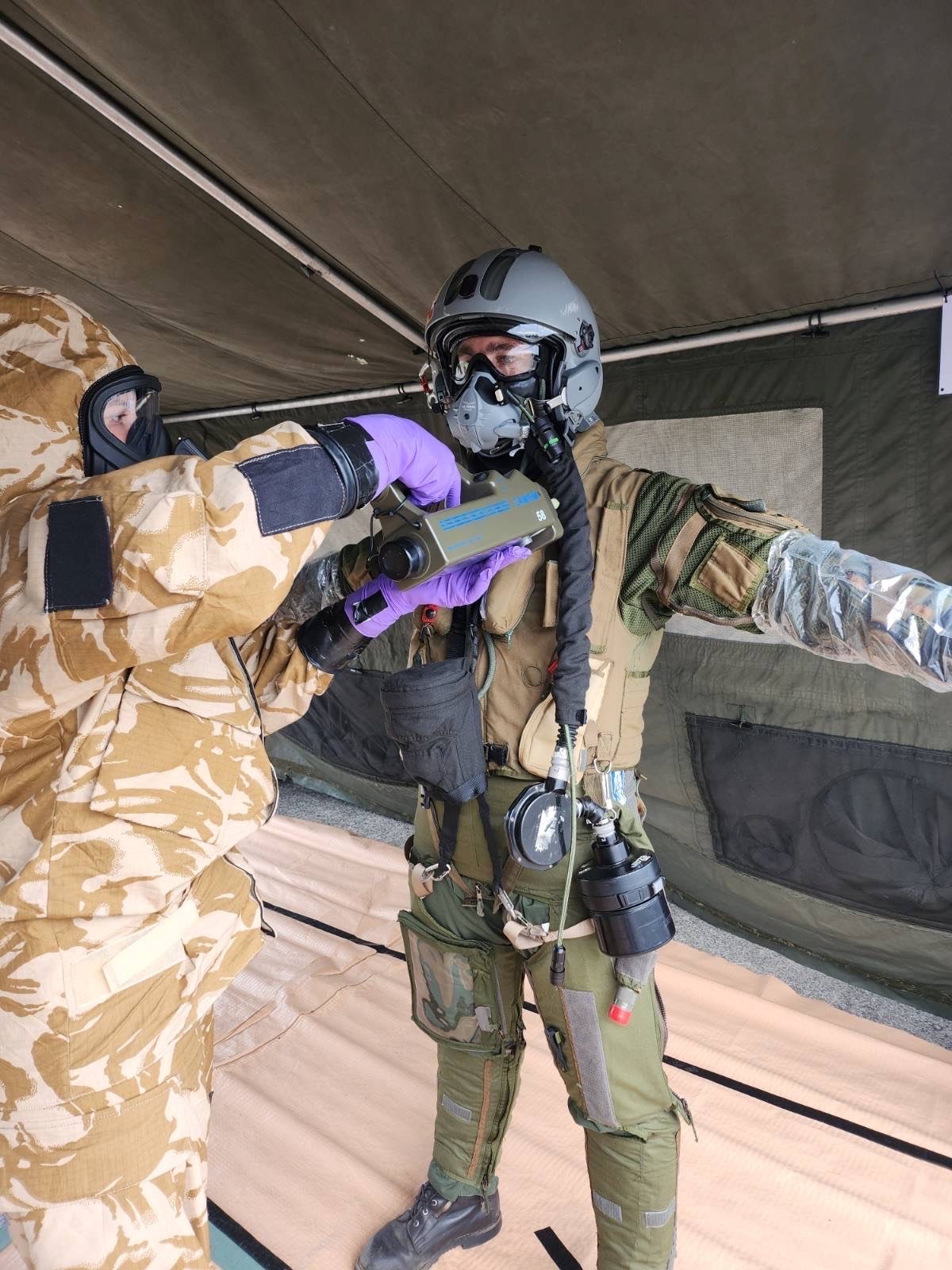
AS1 Bailey, an RAF Regiment Gunner from Sheffield and youngest member of the RAF Detachment said -
This is my first overseas deployment with the RAF – it’s great to be here in Belgium and work with all the other nations. The training has taught me so much more about CBRN, and as the youngest Brit here, it was a proud moment to carry the Union Flag at the Opening Ceremony.
Corporal White, of the RAF Medical Services, from Newport, Wales said -
The opportunity to integrate with our NATO partners has been a fantastic experience! We’ve had to deal with a wide range of aircrew equipment configurations and that means staying flexible, trouble-shooting and adapting minute to minute. I’ve made many new friends from overseas and have even had the chance to practice my French. It’s been a truly memorable time.
Flight Lieutenant Cris Bond, RAF Regiment, who deployed at the start of the Salisbury Emergency and is the RAF Detachment Commander said –
Exercise Toxic Trip is an outstanding opportunity to rehearse RAF integrated C-CBRN capability alongside our Allies. This level of realistic, multi-national training shows just how serious we are in preparing against our adversaries who may be willing to use CBRN weapons. The wider experience and development – particularly to our younger people - is hugely valuable.

